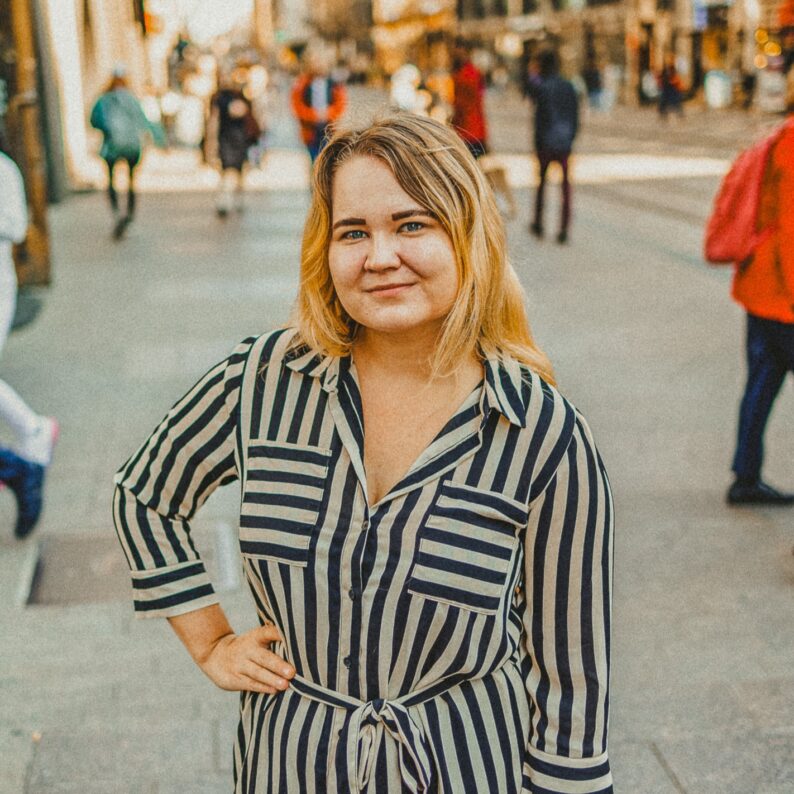


Kaarle Hämeri continues as the chancellor of the University – but who is Hämeri and what does the chancellor do?
BLOG
Kaarle Hämeri started his second term as the chancellor of the University of Helsinki on 1 October 2022. What is the position of chancellor all about? What could the chancellor have to say to students? HYY’s educational policy sector investigated the matter, inviting Kaarle Hämeri for an interview!
The position of chancellor at the University of Helsinki is a unique one in the Finnish university sector. The position is chiefly about advocating the interests of the University of Helsinki and representing the University in society. The chancellor of the University of Helsinki has the right to attend and speak in government sessions that concern matters related to the University of Helsinki. Still unclear about the role? No worries, we managed to get the chancellor himself to demystify the cryptic nature of his job!
How would you explain what the chancellor does to a new student?
‘A suitable analogy can be found in the relationship between the roles of the president and prime minister of Finland: The prime minister has the funds and operative power. The president has neither, but they do have power based on their status and person. Similarly, the University has a rector with operative powers and a chancellor whose function is representative. In short, the chancellor’s role is to create and maintain community relations.’
The chancellor is appointed for five years at a time. Hämeri has already served one term as the chancellor and has now been selected to continue in the position for another five years.
What was the most significant achievement of your previous term?
‘I would name the manner in which the University tackled the coronavirus era and especially fundraising during the difficult societal and financial situation caused by the two-year pandemic as the greatest achievement. The University does not operate in a vacuum in society and the world. For this reason, achieving the trust of societal actors was important during the pandemic and will be so in the future, as well, to allow us to rise to international challenges.’
Hämeri states that this was also a demonstration of the University’s ability to adapt and recover from surprising and radical changes.
‘If someone had said a few years back that you will be facing a two-year period battling a pandemic, no-one would have believed it. Of course, there have been challenges with coping among students and personnel. In the big picture, though, we have survived the exceptional circumstances, and even though the times were tough, our results have not been bad’, Hämeri stresses.
The chancellor is also the face of the University management towards the University community. Hämeri mentions the University’s various ceremonies, promotions, May Days and anniversaries where he has had the chance to see the heart of the University – the people – as the most memorable part of his previous term. In Hämeri’s opinion, the University community is built on academic freedom: individuals and research groups define what is important, what is sensible and what they want to do. For instance, the objects of research are not decided from the top down but based on the academic community’s skillset and interests. To make all this work requires a community, a spirit of doing things together and equality within the community.
What kind of significance do you consider the University community to have?
‘The University is the voice of the people operating in it. A functional university democracy that involves everyone is a vital prerequisite for a successful and good university’, Hämeri sums up the role of communality and democracy at the University.
According to Kaarle Hämeri, students are a significant part of the University community as well as the most visible one in the city. Their position is somewhat unique compared to professors, researchers and other personnel, for instance. Students come to the University with less knowledge than those who are already there, but they will also be the ones determining the direction of our future. They will grow into a new generation of researchers and teachers, and they will change society. Hämeri believes that students must have the opportunity to explore and try out new things while seeking their own way in the academic world and in society.
‘Students must be heard, and they must be shown what our community is and what knowledge already exists to ensure that they will be able to influence the future. Students themselves must keep their ears open and use their mouth to produce their own voice.’
What was being a student like for you?
Hämeri considers the time spent studying important for creating networks and experimenting. He encourages students to join organisations, student nations and the student movement, as each human contact made during studies will be useful later, one way or another. Reflecting on his own student days, Hämeri thinks that if he had another go at being a student, he would spend more time exploring student nations, for instance. He sees them as a good way to experiment and seek new people and hobbies that tie in with your own interests. From his own studies, he still vividly remembers the first times he arrived for lectures in Siltavuorenpenger. Listening to the lectures of charismatic teachers there, he felt he could sense a centuries-old tradition of education. This also left him with the idea of education as one of the greatest and most important achievements of humanity.
We also wanted to know what Hämeri considers the most important place at the University, a place that all students should visit. He did not have to think twice about his answer:
‘All students should definitely visit the Main Building of the University. Looking at its architecture or stepping through its front door, you can immediately sense how Finland and the University of Helsinki join the old European university tradition.’
What greetings would you like to send to students?
I would like to reference the principles of the French Revolution. ‘Liberty, equality, fraternity’ can be applied to the university world as academic freedom, communality and inclusion. The University and its students are the part of society that will create and maintain culture and education concretely and practically even when the world around us feels chaotic or even scary.’
‘As long as humanity exists, so will culture and education. Both current and future students must cherish and advance them’, Hämeri sums up.
It is easy for the Student Union to agree with these principles. We wish Kaarle Hämeri a successful term as the chancellor!
HYY’s educational policy sector
Members of the Board Nea Hakala & Aku Houttu
Specialists Marianna Suokas & Mathilda Timmer



